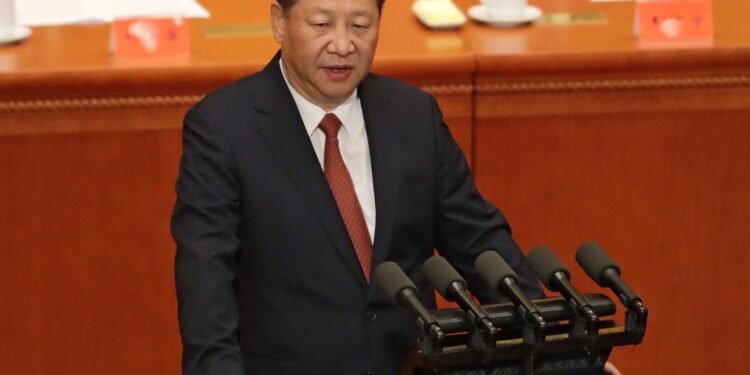The Chinese economy is currently witnessing a wave of optimism, amid a significant improvement in stock markets, with hedge funds achieving significant profits as a result of large-scale economic stimulus announced by Chinese President Xi Jinping.
According to reports from Bloomberg, these measures came at a sensitive time for the Chinese economy, which has suffered from a long recession, as the Chinese government has finally begun to address the chronic economic problems that have worsened in recent years.
Chinese government incentives
The Chinese government has launched a series of economic stimulus, including easing monetary policies, fiscal expansion, and support for home buyers, in addition to large capital injections into local banking institutions.
A market stability fund was also established with the aim of maintaining the balance of financial markets, and these steps come within the framework of the government’s attempts to enhance domestic demand and restore vitality to the economy, which relies heavily on industrial production and internal consumption.
Daniel Moss, an economic analyst at Bloomberg, explained that the new measures may be the first step towards returning the Chinese economy to sustainable growth.
He added, “To maintain this momentum, the Chinese government must not only fulfill what it announced, but also set concrete goals that enhance confidence in the markets.”
Big gains
Before the start of the National Golden Week holiday in China, Chinese financial markets witnessed a sharp rise, sparking a wave of optimism among investors.
The Bloomberg China Stock Index saw a significant increase in its value, reflecting growing confidence in the government’s ability to manage the economic crisis.
According to reports, hedge funds that invested heavily in the Chinese market recorded returns of up to 25% in recent months, reflecting the positive impact of government measures on the markets.
In the same context, Bloomberg analyst John Authers said, “This increase came as a result of the major changes that the Chinese government has made in its economic policies, and there is clear enthusiasm in the market, but the real question is whether these incentives will be sufficient to bring about lasting change.”
Headache of the real estate and employment sector
Despite these positives, there are still major challenges plaguing the Chinese economy, especially in the real estate sector, which is facing a major crisis, according to Bloomberg.
The decline in real estate prices and the increase in debt in this sector had a negative impact on the stability of the economy, and led to investors’ concern about the continuity of growth.
The unemployment rate among young people is still high, reaching about 21.3% in recent months. This figure is considered a serious indicator of the general economic situation, and reflects the difficulties the government faces in creating new job opportunities for Chinese youth.
“Pessimism toward the Chinese economy has become one of the most popular investments, but new economic stimulus may change this trend, at least in the short term,” Bloomberg columnist Shuli Ren said.
Global impact of China’s economic recovery
In addition to the impact of these measures on the local economy, Bloomberg expects that Chinese stimulus will have a direct impact on the global economy, as the Chinese economy is pivotal for many countries, especially in the areas of industrial production and demand for basic commodities, such as oil and raw materials.
China is the largest exporter and consumer of many goods, making any recovery in its economy critical to global economic growth.
According to a Bloomberg report, analysts indicated that the success of China’s economic measures will lead to a recovery in global markets.
Marcus Ashforth, an analyst at the agency, said: “China plays a crucial role in the global economy, and any improvement in its economy will enhance international trade and raise demand for goods.”
The sustainability of China’s growth will depend largely on the government’s ability to address chronic crises, such as the real estate crisis and unemployment
A conservative look at the future
Despite this optimism, many experts remain cautious about the sustainability of this economic recovery, as ongoing crises in the real estate sector and high unemployment among youth may hinder government efforts to achieve sustainable growth.
“The Chinese economy remains highly dependent on industrial production and global consumer demand, making China’s recovery crucial to global economic growth,” Shuli Ren commented.
For his part, Henning Gloystein, an analyst at the Eurasia Group, said in another report published by Bloomberg, “Although the situation appears positive now, major challenges still remain and cannot be ignored.”
He pointed out that the sustainability of growth in China will depend greatly on the government’s ability to address chronic crises, such as the real estate crisis and unemployment.



